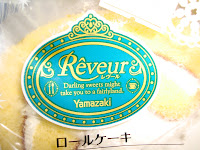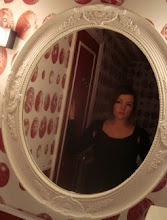 I know that many of you back home love sushi (except for my mum probably everyone). And we all know that we spend a fortune when we have sushi at Noohn, Sakura or any of the other sushi bars in town. Usually a sushi dinner would cost around 40 CHF.
I know that many of you back home love sushi (except for my mum probably everyone). And we all know that we spend a fortune when we have sushi at Noohn, Sakura or any of the other sushi bars in town. Usually a sushi dinner would cost around 40 CHF. Japan is really sushi wonderland, which is not surprising since it's orginating here. Super fresh and many more types of sushi than we have back home. But I'm actually surprised how cheap it is, considering that Japan is said to be really expensive (which I generally haven't found it to be so far). The cheapest way to have sushi is buy maki rolls from a convenience store like am/pm. A roll costs a little more than 100 Yen (~1 CHF) and is probably around 12 cm long, so quite big. You also get a selection of different sushi rolls on a plate for about 300-400 Yen (3-4 CHF).
Then there is the luxury take away version from Iwataya, Japan's equivalent of Globus. The most delicious sushi plates at a slightly steeper price, but still less than half the price of the Swiss take away sushi. See picture... The sushi is super fresh also, you can see the time when it's done on the label. Yummy!
And then there are sushi bars of course. I have found a really nice and cheap one, the "sushi train" kind of place. Delicious assortment of various types of sushi that usually cost 120-300 Yen per plate. For a lunch I would typically spend around 700-1000 Yen (7-10 CHF). Isn't that cool, to have super fresh delicious sushi for the price of a canteen lunch?
I'll be spoilt for Swiss sushi forever...
 "Akabana", the mystical place where I got stuck for much longer than I wanted to ;-) What is it's secret?
"Akabana", the mystical place where I got stuck for much longer than I wanted to ;-) What is it's secret?  But the atmosphere is really perfect for a hostel. Hori, the owner and Ippe, the "manager" or someone else from the staff usually organized something for the evening. A barbecue in front of the house, sunset watching on Ama beach or on the mountain, a karaoke night at the Izakaya or... A lot of focus on community life and a laid-back, very friendly atmosphere that made you want to stay. The barbecues were the most popular thing, Hori acted as the grillmaster and just prepared the most incredible amounts of delicious meat, fish and vegetables. One evening we were close to 30 people at the table, so a lot of work!
But the atmosphere is really perfect for a hostel. Hori, the owner and Ippe, the "manager" or someone else from the staff usually organized something for the evening. A barbecue in front of the house, sunset watching on Ama beach or on the mountain, a karaoke night at the Izakaya or... A lot of focus on community life and a laid-back, very friendly atmosphere that made you want to stay. The barbecues were the most popular thing, Hori acted as the grillmaster and just prepared the most incredible amounts of delicious meat, fish and vegetables. One evening we were close to 30 people at the table, so a lot of work!  behavioural rules called "Akabana lifestyle". It started in the morning. If you were still sleeping at 8.30-9 am, they would just open the curtains and shout a friendly "ohayoo gozaimasu" (good morning). If you tried to ignore that, they would repeat it with your name at the end or start vacuum cleaning next to you... At night when the party got too loud, they would suggest something like "why don't we all go down to the ferry port and watch the stars?". That would usually make people more quiet and when coming back from star watching they would start going to bed. There was a lot of these little friendly manipulation going on, it was funny to observe.
behavioural rules called "Akabana lifestyle". It started in the morning. If you were still sleeping at 8.30-9 am, they would just open the curtains and shout a friendly "ohayoo gozaimasu" (good morning). If you tried to ignore that, they would repeat it with your name at the end or start vacuum cleaning next to you... At night when the party got too loud, they would suggest something like "why don't we all go down to the ferry port and watch the stars?". That would usually make people more quiet and when coming back from star watching they would start going to bed. There was a lot of these little friendly manipulation going on, it was funny to observe.  But nobody really minded it, because the atmosphere at "Akabana" is just great.
But nobody really minded it, because the atmosphere at "Akabana" is just great. 







































